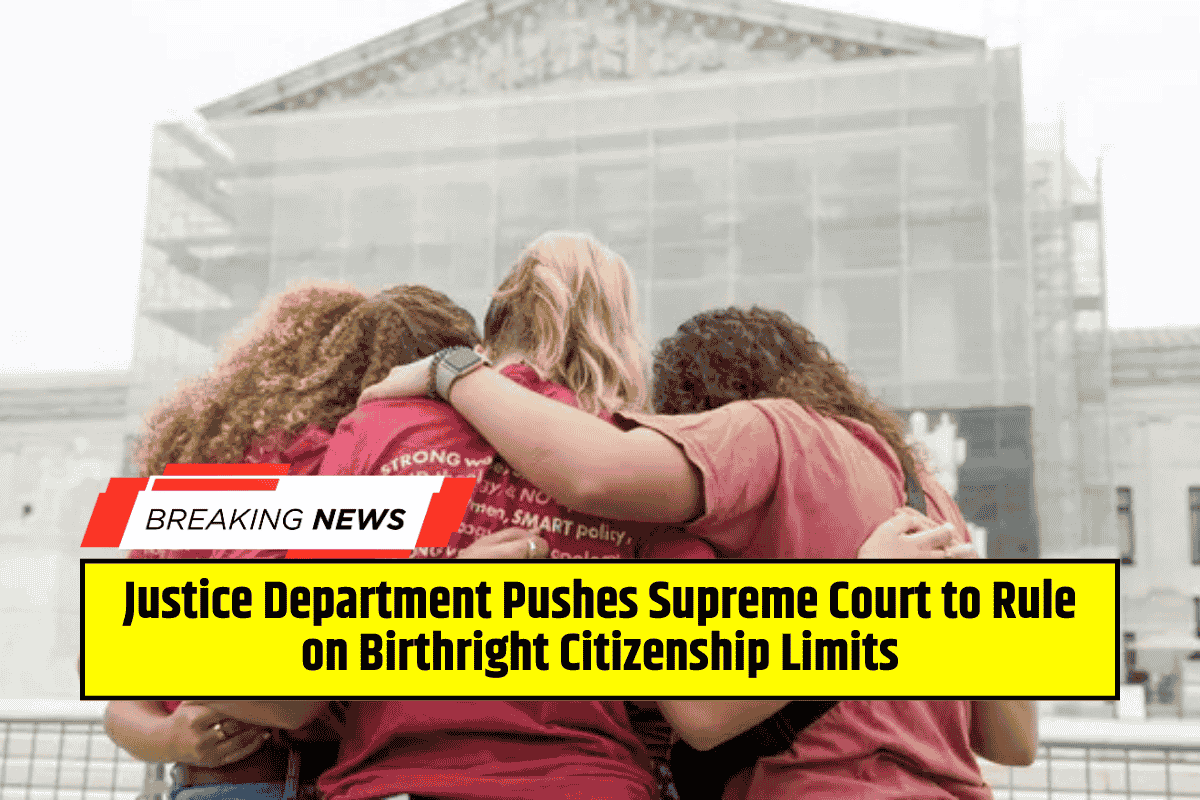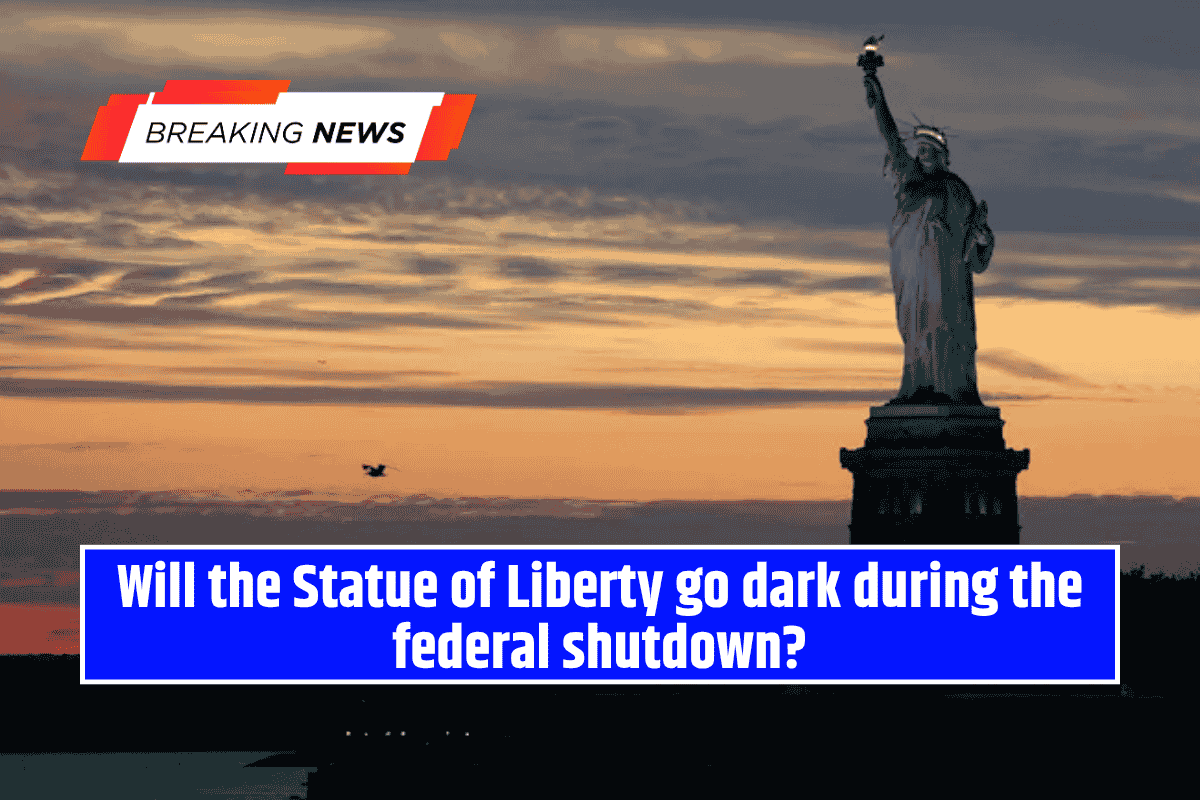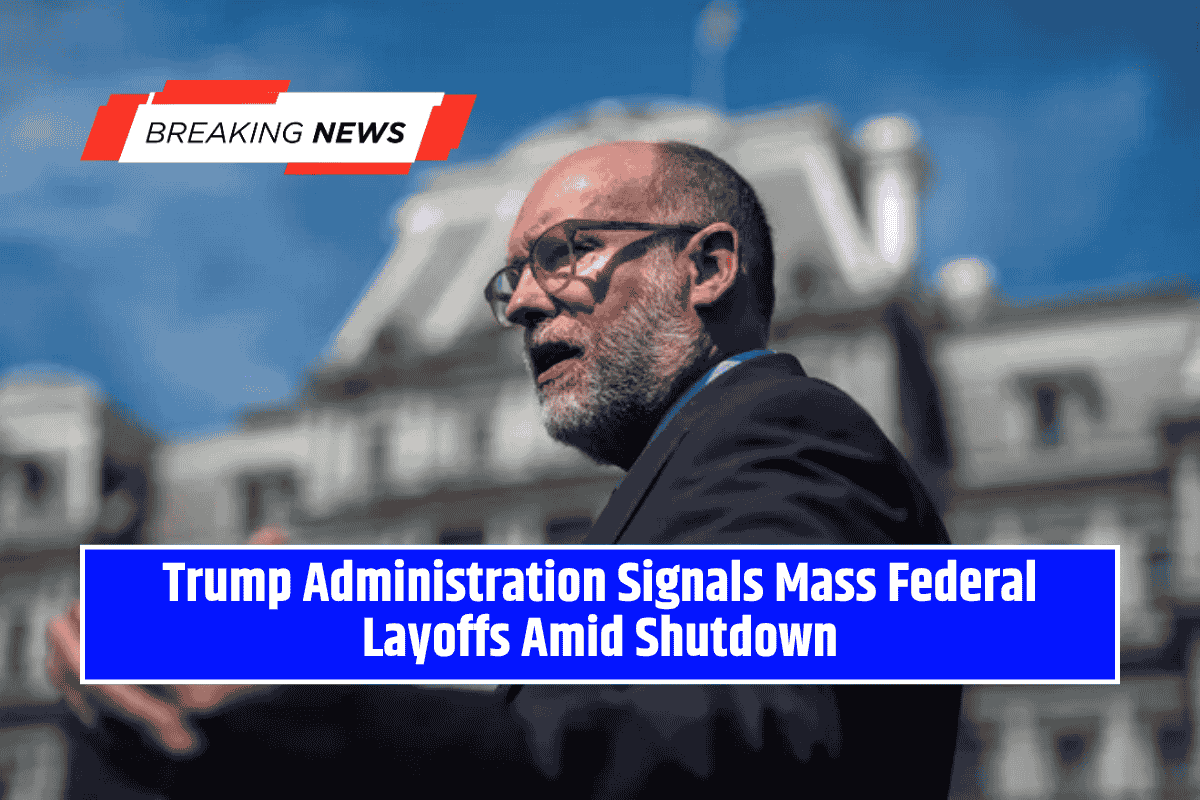The Justice Department has asked the U.S. Supreme Court to weigh in on President Donald Trump’s controversial attempt to restrict birthright citizenship, a move that could fundamentally reshape how the Constitution is interpreted on the matter.
The appeal, filed on September 26, challenges lower court rulings that blocked Trump’s executive order and reignites a national debate over immigration, citizenship, and constitutional rights.
Background on Trump’s Executive Order
On his first day back in office in January, President Trump signed an executive order directing federal agencies not to recognize as citizens children born in the U.S. unless at least one parent is an American citizen or a lawful permanent resident.
This marked a dramatic break from the longstanding interpretation of the 14th Amendment, which guarantees citizenship to anyone born on U.S. soil.
The order quickly faced a wave of lawsuits from states and individuals, who argued that the measure violated constitutional rights and Supreme Court precedent. Federal courts in Washington, New Hampshire, and California halted the order, setting up a direct clash between the administration and the judiciary.
The Legal Battle and Appeals
In its appeal, the Justice Department argued that the lower court rulings undermined border security and wrongly extended the benefits of citizenship to those it deemed “unqualified.”
The administration emphasized that universal birthright citizenship encourages illegal migration and fosters “birth tourism,” where foreigners enter the country solely to give birth.
Two major challenges are now at stake: one brought by the state of Washington and three other states, and another filed by individuals in New Hampshire.
Both suits resulted in national injunctions blocking Trump’s order. The administration is asking the Supreme Court to take up the New Hampshire case even before a federal appeals court issues its ruling.
Constitutional Context and Precedent
The crux of the dispute lies in the interpretation of the 14th Amendment, ratified in 1868 to ensure citizenship for formerly enslaved people.
While historically interpreted to apply to nearly all children born on U.S. soil, the Trump administration argues that it excludes children of undocumented immigrants and those temporarily in the country.
The precedent most often cited is the Supreme Court’s 1898 decision in United States v. Wong Kim Ark, which affirmed that a man born in San Francisco to Chinese immigrant parents was a U.S. citizen.
The Justice Department, however, claims that ruling was narrower than widely understood, applying only to children of parents with permanent U.S. residency.
Broader Implications and Political Stakes
The Supreme Court’s conservative-leaning majority has already weakened the power of lower courts to issue nationwide injunctions, though exceptions remain for class actions and state-led suits.
A ruling in Trump’s favor could redefine the scope of judicial checks on presidential power while setting a new legal framework for citizenship.
Justice Clarence Thomas, speaking recently at Catholic University, underscored the stakes by suggesting the court should revisit established precedents, calling some past decisions little more than “something somebody dreamt up.”
Since Trump’s return to office, the administration has repeatedly asked the Supreme Court to intervene in immigration disputes, often successfully. The Court most recently allowed Trump to block $4 billion in foreign aid appropriated by Congress.
With the Supreme Court’s new term beginning October 6, the case over birthright citizenship could become one of the most consequential battles of Trump’s presidency, determining whether the children of millions of immigrants—both documented and undocumented—will retain automatic American citizenship.










